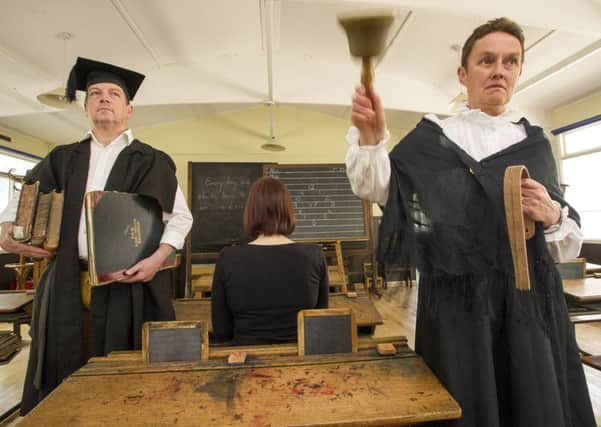Why some children will always need to be expelled from school – Cameron Wyllie


So there I was having my breakfast with the sun streaming in on a fine Joppa morning, listening to John Humphrys on the Today programme talking about the terrible cancer of knife crime. He was discussing with a passing sociologist the unsurprising fact that a high proportion of those found guilty of stabbing someone have, at some point, been excluded from school and the crusty old veteran reporter said the most astonishing thing: “Isn’t it time we said to head teachers that they simply can’t exclude anyone from their school?”
The sun went down, the Asda muffin lay bereft in front of me, while I exploded at the radio – surely, I thought, surely he can’t mean that. He can’t believe that it’s fine for a teacher of say, maths, to look at their class of say, 30 kids, some of whom will have specific learning difficulties which require individual attention and for that teacher to know that there’s no chance that the really aggressive, possibly bonkers kid sitting at the back, who could be carrying a weapon – for Heaven’s sake – can’t be removed from the school. Of course head teachers should have the power to have them excluded, so that the other kids can live in an atmosphere free, or at least freer, from fear and intimidation, and the teacher and his pupils have a better chance of getting on with what they are actually there to do, which is, let’s remember, to teach and to learn.
Advertisement
Hide AdAdvertisement
Hide AdOf course, I accept that criminality is very heavily tied into socio-economic circumstances, that parental violence breeds violence, that the young people who carry knives need help, but, good grief, ordinary schools are not the place for these cases. They need care, and attention, in a different environment, and if I was in charge of the education budget, I would spend a lot of cash on that provision, not least because in the long run it would save a lot of money, but that’s another issue for another day.
I am in no doubt whatsoever that almost all parents in Scotland think that an important element of their child’s education should be that they are taught to behave well, and also that they can learn in an environment conducive to learning, an environment where they can ask for help or answer questions without fear of ridicule and without having to attract the attention of a professional educator who is spending large chunks of their time dealing with disciplinary issues, many of them essentially of a low-level nature. I believe that too many young people in Scotland are a bit afraid of school, scared really to participate in the learning process, and that this is particularly true of adolescent girls, good girls who, regardless of their ability, would like to learn and do their best.
We need to move away from ‘no blame’ bullying policies and we need to be ready to suspend or exclude pupils who persistently cause trouble or bully or assault other pupils or staff and, as I have said, we need to spend the money necessary for such excluded pupils to receive a quality education in special units which, hopefully, would allow them to return to the mainstream in time. We need to place much more power in the hands of head teachers and, in order to maintain the rights of most pupils and their parents to the education which is costing the taxpayer £6,800 a year, we need to ensure that head teachers receive the full backing of the council, the unions, the social services and the Government.
Head teachers like the word ‘ethos’ – ask any of them (or maybe it’s still ok for me to say ‘us’) and they/we can spraff away using a fairly predictable set of words: “The ethos of my school is about hard work/kindness/friendliness/respect/personal achievement/bananas/individuality/thoughtfulness/encouragement/resilience et. (Actually there is one item there that they don’t usually say, but I need to make sure you are actually reading).
Anyway, I honestly believe that none of the things in the list – except possibly the fruit – can be achieved without discipline. Discipline and pastoral care go hand in hand in creating a good school environment where young people feel safe and where they can get on with what they are there to do, that great and uplifting mix of learning, making friends, growing up and finding out about yourself, other people and the world.
The twin evils of laxity and inconsistency, matched with the bad side of social media, mean that too many kids spend too much of their time preoccupied with matters other than the National 5 Geography syllabus. Schools are indeed right to focus on the rights of children – many of them are now certified by the Rights Respecting School Award, which is a great initiative by Unicef UK and is not easy to achieve. One of the points made by the inspector who came to the school I helped to lead was that rules are necessary – rules which are stuck to by the pupils and applied by all the staff consistently. In this way only are all our children protected by having their rights respected. Discipline – with its associations of the Lochgelly and some old bitter sadist who used to teach you something (or was meant to) – needn’t be a dirty word in these more respectful and kinder days. It is absolutely vital.
Cameron Wyllie, a retired headteacher, publishes a blog called A House in Joppa
